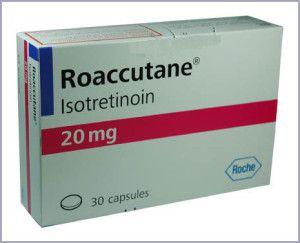The effectiveness of oral isotretinoin in treating acne is indisputable. However, can this medication be used for other purposes in the field of medical aesthetics?
Isotretinoin has various functions in the body, including anti-inflammatory and immunomodulatory effects, reducing oil production, and regulating keratinization. As a result, it can not only treat acne but also address different types of skin problems, such as rosacea, psoriasis, and ichthyosis. In the field of medical aesthetics, oral isotretinoin is often used.
Apart from treating severe nodulocystic acne, isotretinoin is also effective in reducing excessive facial oil production. Excessive facial oil is a common problem that can be a source of embarrassment for many people. Oily skin can attract unwanted attention, and constantly blotting the face can be time-consuming. Moreover, excessive oil production can exacerbate acne and blackhead problems. The use of oil-control products, topical medications, and alpha-hydroxy acids can effectively reduce oil production. However, the effects of these measures are usually temporary and incomplete, and the problem tends to recur once the treatment is stopped. In severe cases, a doctor may consider prescribing oral isotretinoin to the patient. The dosage is generally lower than that used for acne treatment, and the side effects are milder. The effects can last for several weeks or even up to a year after discontinuing the medication, which is longer than other treatment methods.
Another situation where isotretinoin may be considered is in the treatment of photoaging. Photoaging is caused by exposure to ultraviolet rays, which can lead to wrinkles, discoloration, dryness, and sagging of the skin. The current treatment options include laser therapy, alpha-hydroxy acids, radiofrequency, and topical retinoids. Vitamin A derivatives such as isotretinoin can increase collagen production and slow down skin aging. A study comparing oral isotretinoin, moisturizing cream, and topical retinoid cream found that oral isotretinoin was as effective as the topical retinoid in improving skin quality and increasing collagen. The researchers concluded that oral isotretinoin is a viable option for treating photoaging.
Oral medication has certain side effects, and isotretinoin’s main side effects include dry skin and lips, with more severe cases causing skin inflammation, as well as elevated liver enzymes and blood lipids. Women must use contraception during the medication period and up to six months after stopping the medication, as it can cause fetal abnormalities. The use of isotretinoin must be based on a doctor’s diagnosis, and consultation with a doctor is recommended if necessary.

